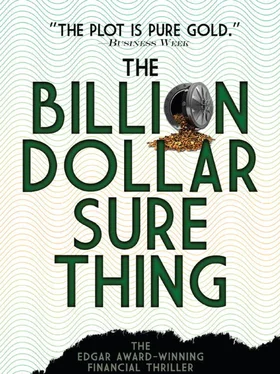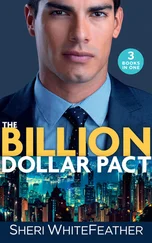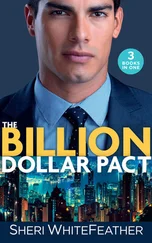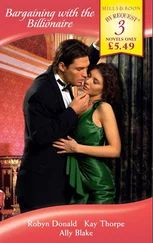“Melekov, I’ll ask you just one more time: what new dollar policy?” His voice had sunk to a hoarse whisper.
“It is quite simple,” replied his deputy. “We have very grave doubts about the immediate future of the dollar. We think it will be devalued again, and by an appreciable amount. We have, therefore, decided to get out of that currency.”
“Just like that!” was the sarcastic comment from the other side of the desk.
“No, not just like that. During the past weeks we have given the entire matter the greatest possible consideration, done enormous research both here and abroad, and reached the conclusion that we must act now, and with the greatest possible speed. We are selling our dollars on the open market starting today. But it is being done very carefully, according to a quite definitive plan.”
“So, you and Roskin have worked out a ‘quite definitive plan,’ have you?”
“That’s right. And part of it is to pay for as many of our future imports with devalued dollars as possible, allowing us a one-time discount of perhaps as much as 15 percent on everything that we have contracted for. The Soviet Union will save billions of dollars. On the pipe contract alone it will come to a quarter of a billion.”
“And Germany will accept it—just like that?”
“They will have no choice, once the contract has been signed.”
“Fine. Very clever. But, my dear Melekov, just who says that the dollar is going to be devalued? You? That arrogant academic quack Roskin? Hasn’t the news seeped through to you geniuses that the dollar was devalued in 1971?”
Melekov sat there.
“And now, like that, based upon some crackpot thinking, you and Roskin are going to overthrow a key policy—no, the key policy of our bank?”
“That’s right,” was the cool response. “I think Roskin intends to call a meeting later this week to explain the full ramifications for the future to all of us here at the Foreign Trade Bank.”
“That is most thoughtful of Comrade Roskin. And so kind of you to give me advance notice. That’s all you have for me today, Melekov?” He did not wait for a reply. “Fine, fine. Then I see no reason to detain you any longer. I’m sure you have much more important matters awaiting you.”
Melekov rose and left Stepanov’s office without any further words. It was one of the most satisfactory moments of his career.
Five minutes later he was in the trading room of his foreign exchange department. The action was hectic. His chief trader hung up a telephone the moment he spotted Melekov and hurried over.
“I’m glad you’re here.”
“Anything wrong?”
“No, quite the contrary. But I must know where we go from here.”
“How much have you gotten rid of?”
“About a billion dollars.”
“Who are the takers?”
“We did about $500 million in both Zurich and London. We’re now working on Frankfurt and Paris.”
“What’s happening to the rates?”
“Well, we must be putting a lot of pressure on the forward dollar. But it’s holding damn well. We’re being matched immediately by takers every time.”
“Good. When does New York open?”
His man glanced at a large wall clock. It showed just a few minutes past three.
“Daylight saving time in the States is over now, so we’re back to ten hours difference. That would mean New York opens in three hours.”
“Right. Try to sell at least another billion in the United States. But mix it up. If necessary do the last part on the West Coast. But remember, keep exclusively to the forward market. Don’t touch spot. And keep the rates coming to me. I’ll be in the office until midnight.”
“One more item before you go. We made that transfer of $500 million to Zurich as you instructed. Now what should we tell them to do with it?”
“I’m handling that directly,” replied Melekov. “But I think you must be kept fully in the whole picture. We’re using it to buy gold bullion.”
“You mean that the Swiss government is actually selling gold?” was the response of his astonished trader.
“No. We’re going to get it in the free market.”
This time the only response was a low whistle.
Melekov added, “That, my friend, is for your ears only. Do we understand each other?”
The nod of agreement could not have been more emphatic. And the stride of Melekov as he left the foreign exchange trading room could not have been more confident. He was taking the biggest gamble of his entire career. But he was in his fifties and it was now or never. Such an opportunity would not come again.
Hans Klausen had not lunched at the Russaya. He had rushed to the German embassy minutes after Melekov had left. That was the only place from which he could hope to communicate with Düsseldorf free of a few dozen curious Russian ears.
The ambassador received him minutes after his arrival, and both of them were soon in the communications room in the basement of the building. They remained there until well past midnight. The future of the ambassador’s status in Moscow related very closely to the future of this pipeline deal. A sudden collapse of the negotiations—just hours before the signing—could set back his newly found rapport with the Soviets by years. He communicated this to Bonn in the strongest possible terms.
At one-fifteen in the morning, Moscow time, he had the answer. The transaction could be based on U.S. dollars. The German government would provide an airtight guarantee to Rhein-Ruhr covering the foreign exchange risk. The interest rate to be paid by the Russians would have to be increased by a token .25 percent, however. After all, prestige was always at stake.
Both Klausen and the ambassador were satisfied. They finished off the bottle of Steinhäger shortly after two. Klausen spent the night in one of the guest rooms at the embassy. He was too tired to move. And he needed to regain his strength for the closing of the contract later that day. Not that the signing would be particularly strenuous. But he knew his Russians. The celebration which would follow would last the entire night.
On this same evening, while the two Germans sat in the basement of the embassy, and while Melekov was directing the moves of his foreign exchange and gold people from his office in the Foreign Trade Bank of the Soviet Union, his boss—Chairman Stepanov—was dining at the Georgian restaurant on Gorky street with a friend. They had met at seven and after five courses, accompanied by much vodka and a few beers, they were now basking over the remnants, with cigars and a bottle of cold Crimean champagne.
The time had come to broach the subject.
“Josef,” said Stepanov, “tell me something. Did the committee discuss any change in our foreign exchange policy recently?”
“No. Not that I know of. I understand nothing about financial matters. You know that, Valentajn.”
“Of course. But was there no discussion about the dollar?”
“No. Of that I am sure.”
“I thought so.”
“What?”
“Roskin and especially that fellow Melekov are not only working behind my back but also behind the back of the committee. You’ve heard me talk of those two before.”
“Indeed I have.”
“Ambitious, ruthless, dangerous. Both of them. They are like twins in their thinking and in their history; educated for years outside of Russia; neither of them fired a shot, or even heard a shot, during the war. They consider men like you and me, Josef, to be Georgian peasants, people who must be removed from the system to make room for academic fancy-pants like themselves. That is exactly what they are trying to do now. I’m sure of it. If we let them get any further, neither you nor I will remain unscathed. It is an absolute outrage. We must do something.”
Читать дальше












